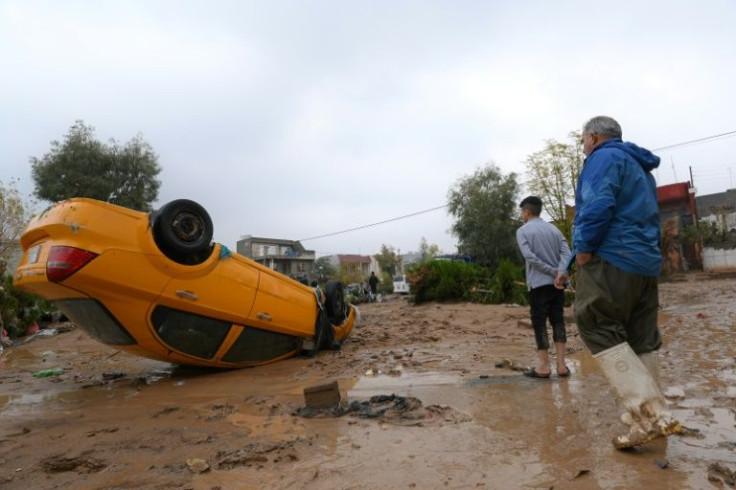Foreigners Among 11 Killed In Iraqi Kurdistan Floods
Eleven people including two foreigners died Friday in flash floods which swept through northern Iraq after torrential rains in Arbil, capital of the autonomous Kurdistan region, an official said.
In a country dealing with severe drought, many were caught by surprise as powerful storm waters started surging into their homes before dawn.
"The toll is now 11 after the civil defence discovered the bodies of three people who were missing, carried away by the waters. Among them are a Filipino national and a Turk," Nabaz Abdelhamid, a local administration official, told AFP.
Provincial governor Omid Khoshnaw had earlier given a death toll of eight, including women and children. He also reported "significant" damage, especially in a working-class district south-east of Arbil city.
Four members of the civil defence team who came to help residents were injured when their car was washed away, he added.
"Of the eight people who died, one died struck by lightning, while the others drowned in their homes," civil defence spokesperson Sarkawt Karach had said.
Many people have been forced to leave their houses, he added.

"Searches are ongoing for missing people," Karach said, warning that the death toll could rise.
In Arbil, an AFP reporter saw torrents of muddy water pouring down roads.

Buses, trucks and tanker trucks were washed away by the storm waters, with some flipped over or turned onto their side.
Khoshnaw called on residents to stay at home unless necessary, warning that further rain was expected with fears of more floods.
Iraq has been hit by a succession of extreme weather events.
It has endured blistering temperatures and repeated droughts in recent years, but has also experienced intense floods --- made worse when torrential rain falls on sun-baked earth.
Hard ground and vegetation loss means the earth does not absorb water as quickly, and when storms hit they can become flash floods.
Scientists say climate change amplifies extreme weather, including droughts as well as the potential for the increased intensity of rain storms.
Experts have warned that record low rainfall, compounded by climate change, are threatening social and economic disaster in war-scarred Iraq.
The effects of low rainfall have been exacerbated by falling water levels on the Tigris and Euphrates rivers as a result of dam-building in neighbouring Turkey and Iran, Samah Hadid, of the Norwegian Refugee Council (NRC), has said.
The severity of the drought has forced many farming families to leave their land and seek a living in urban areas.
In a study released Thursday, the NRC said half of the families living in drought-affected areas of Iraq need food aid.
© Copyright AFP 2024. All rights reserved.











